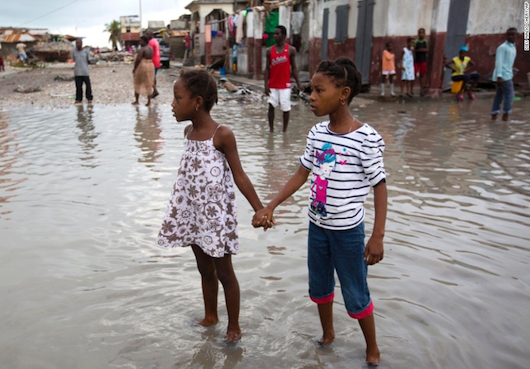We all recall the devastating cholera epidemic that swept through Port-au-Prince following Haiti’s 2011 earthquake. Whenever urban centers are disrupted the risk of cholera, causing rapid death via dehydration, is predictably high. So, it is laudable that now, just one month following Hurricane Matthew, history’s largest-ever emergency cholera vaccination is underway with the goal of protecting about one-million Haitians displaced by the storm.
“Vaccination is complementary to other preventive measures,” says Jean Luc Poncelet of the Pan American Health Organization (PAHO), quite appropriately adding that, “Each person must be a leader of change: daily chlorination of water in the house, drinking potable water, rehydration if there is diarrhea, and seeking treatment.”
All of us concerned with health in developing communities realize the importance of both water provision and of water-borne infections. What is taking place in Haiti at this moment is a case study of immense implications for future prevention and response to future catastrophes. All eyes on Haiti, please.

